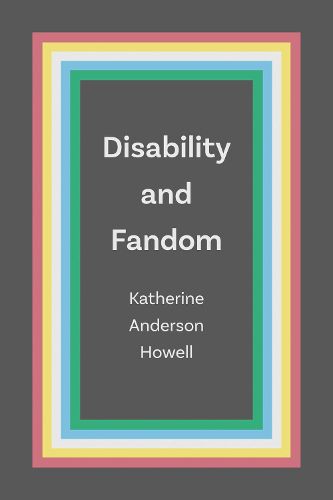Readings Newsletter
Become a Readings Member to make your shopping experience even easier.
Sign in or sign up for free!
You’re not far away from qualifying for FREE standard shipping within Australia
You’ve qualified for FREE standard shipping within Australia
The cart is loading…






Disability and Fandom discusses the accessibility and welcome of fan spaces, and it explores how disability functions in fan practices. In a readable, personal style, Katherine Anderson Howell shows the overlaps between disability studies and fan studies, analyzing how fandom operates in physical and digital fan spaces. She argues that it is time for fan studies to let go of the idea of fans in general as marginalized or as powerless groups.
Anderson Howell examines how key fandom platforms-including cons, Tumblr, Archive of Our Own, Instagram, Reddit, and TikTok-set up user interfaces that may mask their true values, potentially decreasing access and creating a system by which disability remains stigmatized. Readers will find case studies of fan fiction, disability influencers, anti-fans, trolls, and celebrities. The argument is made for incorporating disability into the analytical tools of fandom so that we may begin with better tools and better questions.
$9.00 standard shipping within Australia
FREE standard shipping within Australia for orders over $100.00
Express & International shipping calculated at checkout
Disability and Fandom discusses the accessibility and welcome of fan spaces, and it explores how disability functions in fan practices. In a readable, personal style, Katherine Anderson Howell shows the overlaps between disability studies and fan studies, analyzing how fandom operates in physical and digital fan spaces. She argues that it is time for fan studies to let go of the idea of fans in general as marginalized or as powerless groups.
Anderson Howell examines how key fandom platforms-including cons, Tumblr, Archive of Our Own, Instagram, Reddit, and TikTok-set up user interfaces that may mask their true values, potentially decreasing access and creating a system by which disability remains stigmatized. Readers will find case studies of fan fiction, disability influencers, anti-fans, trolls, and celebrities. The argument is made for incorporating disability into the analytical tools of fandom so that we may begin with better tools and better questions.